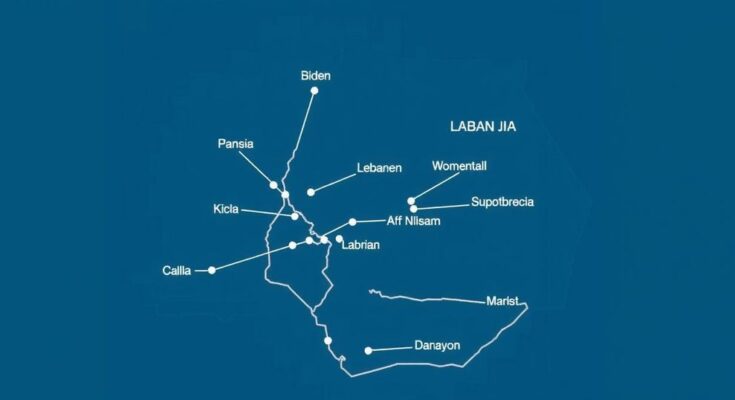U.S. mediator Amos Hochstein is negotiating a ceasefire between Hezbollah and Israel, facing criticism that any deal could ultimately benefit Hezbollah and Iran. A dispute exists regarding Israel’s right to respond to Hezbollah’s violations, with broader implications for U.S. military funding and the ongoing conflict in Gaza complicating the situation.
Amos Hochstein, a U.S. mediator, has recently arrived in Israel to further negotiations for a ceasefire between Hezbollah and Israel. Despite the ongoing discussions, many critics argue that any agreement reached would ultimately strengthen Hezbollah and bolster Iranian influence in the region. Following a meeting with Lebanon’s Parliament Speaker Nabih Berri, Hochstein reported progress but addressed a critical issue: Israel’s perceived need for the ability to retaliate against Hezbollah violations of the ceasefire. Leaders on both sides have differing views on this point, as Hezbollah asserts that Israel should refrain from aggressive actions, while Israeli officials insist on the right to defend their territory.
Furthermore, Middle East analyst Lee Smith highlighted concerns regarding U.S. funding directed towards the Lebanese Armed Forces, which he claims is infiltrated by Hezbollah. Smith asserted that the implications of this funding would be detrimental, suggesting that it effectively supports Hezbollah rather than assisting Lebanon as a whole. In a related diplomatic move, the United Nations Security Council attempted to pass a resolution for an immediate ceasefire in Gaza, which the U.S. vetoed. The ongoing tensions surrounding these discussions underscore the complexities faced by both American and Israeli leaders as they navigate regional security amidst ongoing violence.
The negotiations for a ceasefire between Hezbollah and Israel come at a critical time, particularly given the heightened conflict in the region. The Biden Administration is seeking to mediate effectively; however, there are concerns that concessions made could inadvertently empower Hezbollah, an Iranian ally, while undermining U.S. interests. U.S. funding and military assistance to Lebanon are also under scrutiny, as concerns arise over the loyalty and influence of the Lebanese Armed Forces amidst Hezbollah’s considerable presence. Parallel to this discussion, broader tensions surrounding the Gaza conflict continue to influence U.S. foreign policy priorities, making the current negotiation dynamics particularly intricate.
In conclusion, the ongoing negotiations for a ceasefire between Hezbollah and Israel are fraught with potential repercussions that could empower Iranian influence via Hezbollah. Critics of the U.S. approach emphasize the risk that financial support intended for the Lebanese Armed Forces may instead bolster Hezbollah directly. With parallel tensions in the Gaza conflict complicating Israel’s security considerations, the path forward remains contentious and uncertain.
Original Source: www1.cbn.com




